Resources
CNJG's website features resources from 77 philanthropy supporting organizations, their 7,000+ grantmaking foundation members, and colleague philanthropic partners. There are several different ways to search the resource library. Using the filters on the right side of this page, you can search by resource type, funding area, topic, or audience. For example, if you are looking for a case study, select that resource type, then filter by funding area, audience or topic to refine the results. Please note, the search box below only searches resources. If you're looking for news or events, use the search box in the upper right corner to search the entire site.
CNJG family foundation members can also search for additional resources through our members-only portal to the National Center for Family Philanthropy Knowledge Center.
- resource provided by the Forum Network Knowledgebase.
Search Tip: Search with " " to find exact matches.
A CNJG member queried our listserves for sample questions (not included in the grant application) you might ask grantees or potential grantees during site visits. CNJG compiled these responses, and other documents members use.
The benefits of sabbaticals for nonprofit leadership have been well documented. A study of five sabbatical programs over five years shows that sabbaticals not only provide needed respite to nonprofit leaders, they increase organizational capacity, aid succession planning, and strengthen governance.
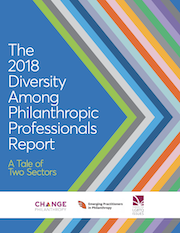
This report lays out the results of the inaugural Diversity Among Philanthropic Professionals Survey, where participants were asked to identify their role within their foundation, their age, gender identity, sexual orientation, race and ethnicity, and disability status.
BD contacted the Corporate listserve to ask questions to benchmark Community Service/Volunteer Paid Time Off Policy & Internal Company Guidelines for Volunteer Councils. They are formalizing some of their programs and wanted to see what other companies are doing.
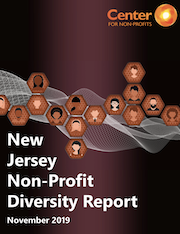
This study underscores the enormous challenges facing the non-profit community to overcome deep- seated inequities in leadership, recruitment and retention.
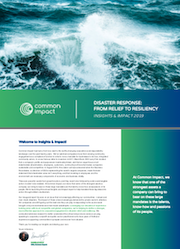
There is a stronger, more strategic role that companies can play by leveraging skills-based volunteering to invest in a community’s resilience.
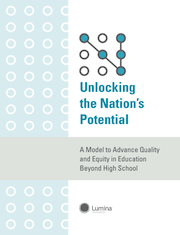
A report from Lumina Foundation and its Quality Credentials Task Force calls for a coordinated national effort to ensure equitable access to quality postsecondary education in the United States.
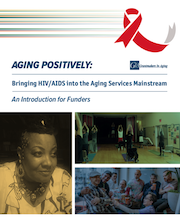
This report will raise the voices and examine the needs of older people living with HIV, while exploring opportunities for philanthropies to create meaningful impact in public and personal health and wellbeing.
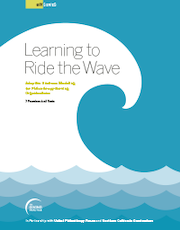
Developed in partnership with United Philanthropy Forum and Northern California Grantmakers, this guide shares seven practices and 12 tools for Philanthropy-Serving Organizations who seek effective ways to mobilize resources to sustain their organization’s work.
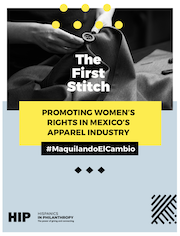
This report highlights both the circumstances that women face in the apparel industry and the broader economic environment in which apparel companies operate, which significantly affects how these companies treat their employees.

Technology Affinity Group has released two new resources as a part of its Cybersecurity Essentials for Philanthropy series. These publications offer best practices and suggestions based on the collective on-the-ground knowledge and experience of philanthropic organizations across North America.
 Racial Equity Tools is designed to support individuals and groups working to achieve racial equity. This site offers tools, research, tips, curricula and ideas for people who want to increase their own understanding and to help those working toward justice at every level.
Racial Equity Tools is designed to support individuals and groups working to achieve racial equity. This site offers tools, research, tips, curricula and ideas for people who want to increase their own understanding and to help those working toward justice at every level.
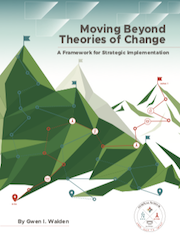
Effecting systemic change through philanthropic initiatives requires not only a strategy but a well-constructed implementation plan focused on "people, partners, and platforms.”
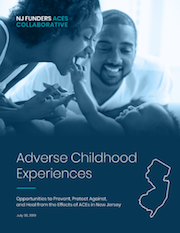
The Burke Foundation, The Nicholson Foundation and Turrell Fund, in collaboration with FSG, has released the new July 2019 report, Adverse Childhood Experiences: Opportunities to Prevent, Protect Against, and Heal from the Effects of ACEs in New Jersey. The report details the challenges New Jersey faces in addressing Adverse Childhood Experiences (ACEs) and calls for a coordinated statewide response to mitigate their lasting effects on children’s health and well-being.
How has place-based family philanthropy evolved over time? Rather than look first to comparing the contrasting decisions—why a place or issue basis for giving—this study is designed to examine how family foundations and funds committed to place are sustaining (or not sustaining) that commitment over generations.
Foundation funding in support of global human rights initiatives totaled $2.8 billion in 2016, up from $2.4 billion in 2015, according to the report from Candid and the Human Rights Funders Network.
This toolkit is for seasoned donors, donor advised fund holders, foundation trustees, and staff who are taking steps to significantly ramp up the impact of their giving.
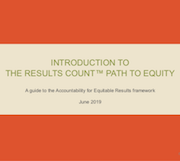
This introduction describes four skills that help leaders to achieve better and more equitable results. The skills are part of Results Count™, the Annie E. Casey Foundation’s competency-based approach to leadership development.
Through the Kids Count Data Center you can access hundreds of measures of child well-being, incluing all those regularly used in the Annie E. Casey Foundation's Data Book. Information can be examined at the state, regional, and national levels.
Guide your philanthropy clients through the complexities of their work in diversity, equity and inclusion (DEI) with our DEI Toolkit for Consultants to Grantmakers.
